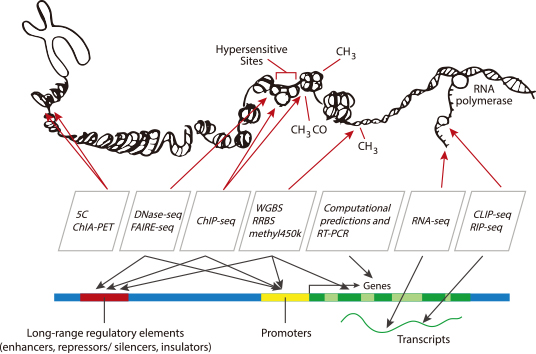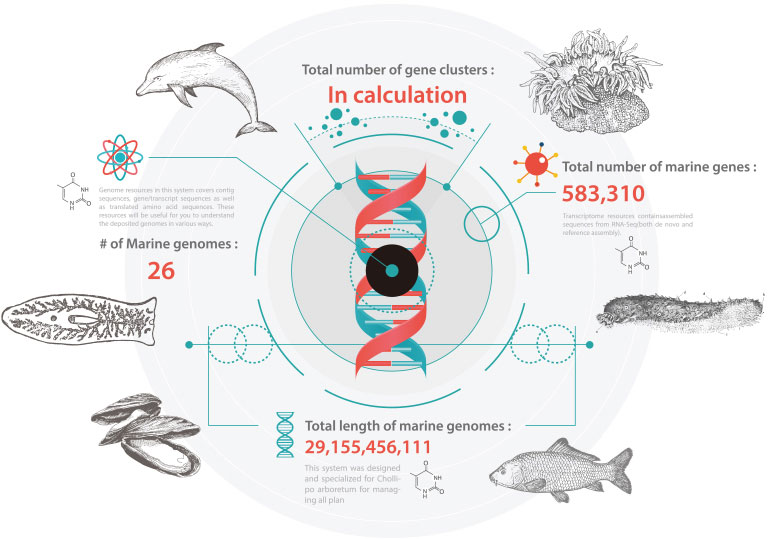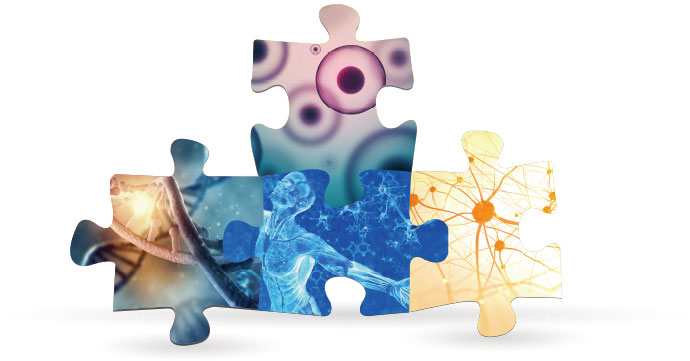Computational evolutionary genomics and comparative biology
Computational evolutionary genomics interfacing between evolutionary biology and computational genomics iscutting-edge research in finding novel evolutionary findings insights that concern natural genome diversity, population genomics, the structure, function, organisation and expression of genomes, comparative genomics, proteomics, and environmental genomic interactions.
Several questions especially on genome evolution, evolution of gene expression, and evolution of mutation rates have been studied, and now we are primarily interested in the understanding gene-environment interaction, gene expression evolution, convergent evolution, and adaptation.

Marine invertebrate genomics
Our group is currently focused on the analysis of NGS (Next Generation Sequencing) data in order to detect genomic, genic and epigenomic variation related to the adaptation of living organisms to the marine environment. We seek to develop analysis tools for related sequencing applications including genome sequencing and assembly, DNA methylation detection, transcriptome analysis and structural variant prediction.

Genome instability and genomic/epigenomic variation
The genomic instability is the most common molecular abnormality by alterations in genome sequence and structure. Not surprisingly, because genomic instability tends to be observed in most tumors, it is thought of as a driving force in tumorigenesis and is considered a hallmark of most cancers. Although such events can be harmful the organisms, from an evolutionary point of view, they are also required for their specialized role in special conditions, such as immunoglobulin diversification. In other words, balance between genomic regions prevented against defects by replication, repair, and segregation and chromosomal hotspots of instability such as fragile sites and highly transcribed regions have an important role in genome evolution. My lab is currently engaged in several projects to better understand the structure, function, and evolution of the genomic elements causing genome instability.




